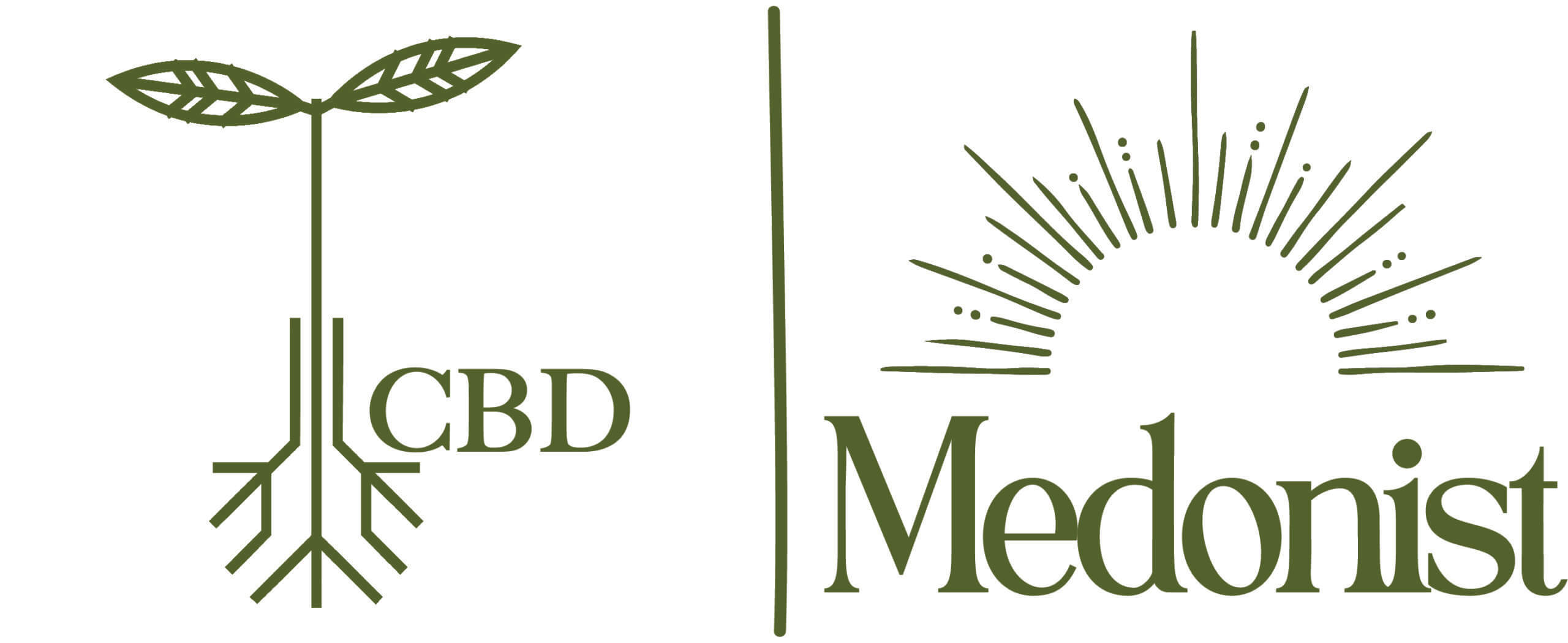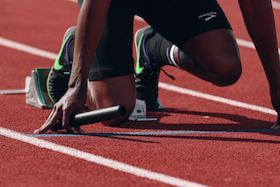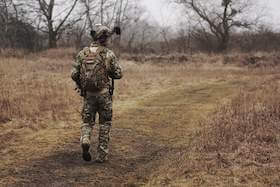HOW TO DOSE CANNABIDIOL (CBD)
Jared Hoffman, PHD
Cannobidiol (CBD), a cannabinoid found in cannabis, is currently a hot topic among the general public and in the scientific community with new studies utilizing CBD in a variety of different disease states.1 Due to this and its potential ability to help decrease anxiety and pain, the popularity of CBD has grown substantially. However, when looking at the different CBD products and trying to figure out how much CBD to take, it can become very overwhelming. That is where this guide comes in.
The first thing to keep in mind when dosing CBD is that everyone will respond differently so experimentation will be needed to determine the right dosage for you. It would be optimal to start at a low dose and work your way up as you see how your body responds. Important considerations when determining the optimal dose of CBD you should take includes the method of delivery used, the CBD product itself, the symptoms you are trying to address, and how to dose CBD based on your bodyweight.
Method of Delivery
An important consideration when determining the proper dose is the method of delivery. One study reported a dose dependent increase in plasma concentrations of CBD using oromucosal drops with dosages at 5 mg, 10 mg, and 20 mg.2 Similarly, oral doses of CBD, such as a CBD capsule that has a fixed CBD concentration, at 10 mg, 400 mg, and 800 mg also appear to increase plasma concentrations dose-dependently. However, the results of the higher doses of CBD did not vary greatly, which may have indicated a saturation effect between 400 mg and 800 mg.1 Smoking or inhaling CBD has also been demonstrated to increase plasma concentrations, but it is difficult to determine how much CBD is being inhaled and typically with this, tetrahydrocannabinol (THC), the primary psychoactive cannabinoid in cannabis, is also inhaled. It appears that THC and CBD interact with each other, synergistically enhancing certain effects while dampening others. For the purposes of determining the optimal CBD dosage, avoiding products that contain THC would help limit confounding variables. Further, the method of delivery also alters the bioavailability of CBD so utilizing just one method of delivery until your optimal dose has been determined would also make things easier.
The CBD Product
Next, be sure the CBD product you purchase is from a reputable source and has been checked by a trustworthy independent laboratory. The FDA has found many products to contain less than or no CBD in products that claim to contain it.3
The Scientific Literature and Symptoms Being Addressed
The scientific literature on CBD is somewhat limited especially in terms of the differences in the methods of delivery, however, it is still a good starting point in determining an effective CBD dosage. In a review by Millar et al, dosages used in studies utilizing CBD ranged from 2 mg CBD/day to 800 mg CBD/day. Among these, the studies using escalating doses found a dose-dependent increase in plasma concentration of CBD.1 However, it is also worth noting that the presence of CBD in the plasma does not necessarily mean that CBD is having an effect on the individual. Nevertheless, 2 mg CBD/day to 800 mg CBD/day is too wide a dosage range to fully determine your optimal CBD dosage but it does tell us that CBD may have an impact even in small amounts and that excessively high doses may not provide any extra benefit. Adding on to this, the symptoms you are trying to address may also impact the dose you will need to take. Unfortunately, there are no current dosing guidelines or maximum dosages recognized in the scientific literature except in certain disease indications.4 That being said, if you are dealing with severe symptoms, you may be better off starting at a higher dose of CBD.
Dosage Based on Bodyweight
For some, it may be best to calculate a starting dose based on bodyweight. For example, some recommendations call for 0.5 mg CBD/kg/day. For an individual that is 150 pounds (around 68 kg), this would be approximately 34 mg of CBD a day, or approximately three 10 mg CBD capsules. This would be a very reasonable starting dose. Some studies use a dose as high as 5 mg CBD/kg/day. For an individual that is 150 pounds, that would be approximately 340 mg of CBD a day and would be too high a starting dose of CBD without the guidance of a physician. If you wanted to start at the minimal possible dose and work your way up, you could simply begin with a 10 mg dose of CBD a day, a dose commonly used in the scientific literature, and then begin increasing your dosage slowly over time as you see how your body responds to CBD. Although CBD is considered to be quite safe,5 this would help limit any immediate unwanted side effects.
When determining what dosage to take, start low and work your way up over time. A good place to start would be 5 or 10 mg of CBD or by calculating your dosage based on your bodyweight (e.g. 0.1 mg CBD/kg/day). It is also worth keeping in mind that over time, your optimal dosage will likely change so adjustments may need to be made.
As always, consult with your physician first about taking CBD and see if they have any recommendations for you.
References:
- Millar SA, Stone NL, Yates AS, and O’Sullivan SE. A SystematicReview on the Pharmacokinetics of Cannabidiol in Humans. Front. Pharmacol. 2018; 9:1365.
- Stott, C. G., White, L., Wright, S., Wilbraham, D., and Guy, G. W. A phase I study to assess the single and multiple dose pharmacokinetics of THC/CBD oromucosal spray. Eur. J. Clin. Pharmacol. 2013; 69:1135–1147.
- United Stated Food and Drug Administration. Warning letters and test results for cannabidiol‐related products. https://www.fda.gov/
NewsEvents/PublicHealthFocus/ ucm484109.htm - MacCallum CA, Russo EB. Practical considerations in medical cannabis administration and dosing. Eur. J. Intern. Med. 2018; 49:12-19.
- Bergamaschi, M. M., Queiroz, R. H., Zuardi, A. W., and Crippa, J. A. Safety and side effects of cannabidiol, a Cannabis sativa constituent. Curr. Drug Saf. 2011; 6:237–249.
ALSO IN RESOURCES
CANNABIDIOL (CBD) FOR ATHLETICS
CANNABIDIOL (CBD) FOR ATHLETIC PERFORMANCEJared D. Hoffman, PhD Athletes, both professional and recreational, are always looking to gain an edge and push their performance in their respective sport to new levels. Often times, athletes will go to great lengths to do...
CANNABIDIOL (CBD) FOR PTSD
CANNABIDIOL (CBD) FOR POST-TRAUMATIC STRESS DISORDERJared D. Hoffman, PhD Cannabidiol (CBD) is a non-psychotomimetic cannabinoid found in the Cannabis plant. CBD, along with tetrahydrocannabinol (THC), the well-known psychoactive component of Cannabis, are just two of...
CANNABIDIOL (CBD) FOR SLEEP
CANNABIDIOL (CBD) FOR SLEEPJared D. Hoffman, PhD The ability to fall and stay asleep in this modern age has become more and more difficult. This is in part due to our hectic lifestyles and being blasted with blue light and sources of entertainment from our phones,...
838 E High St, Suite 268, Lexington Ky 40502
© 2019 On Duty CBD.
This product is not for use by or sale to persons under the age of 18. This product should be used only as directed on the label. It should not be used if you are pregnant or nursing. Consult with a physician before use if you have a serious medical condition or use prescription medications. A doctor’s advice should be sought before using this and any supplemental dietary product. All trademarks and copyrights are property of their respective owners and are not affiliated with nor do they endorse this product. These statements have not been evaluated by the FDA. This product is not intended to diagnose, treat, cure or prevent any disease. By using this site, you agree to follow the Privacy Policy and all Terms & Conditions printed on this site. Void Where Prohibited by Law.




